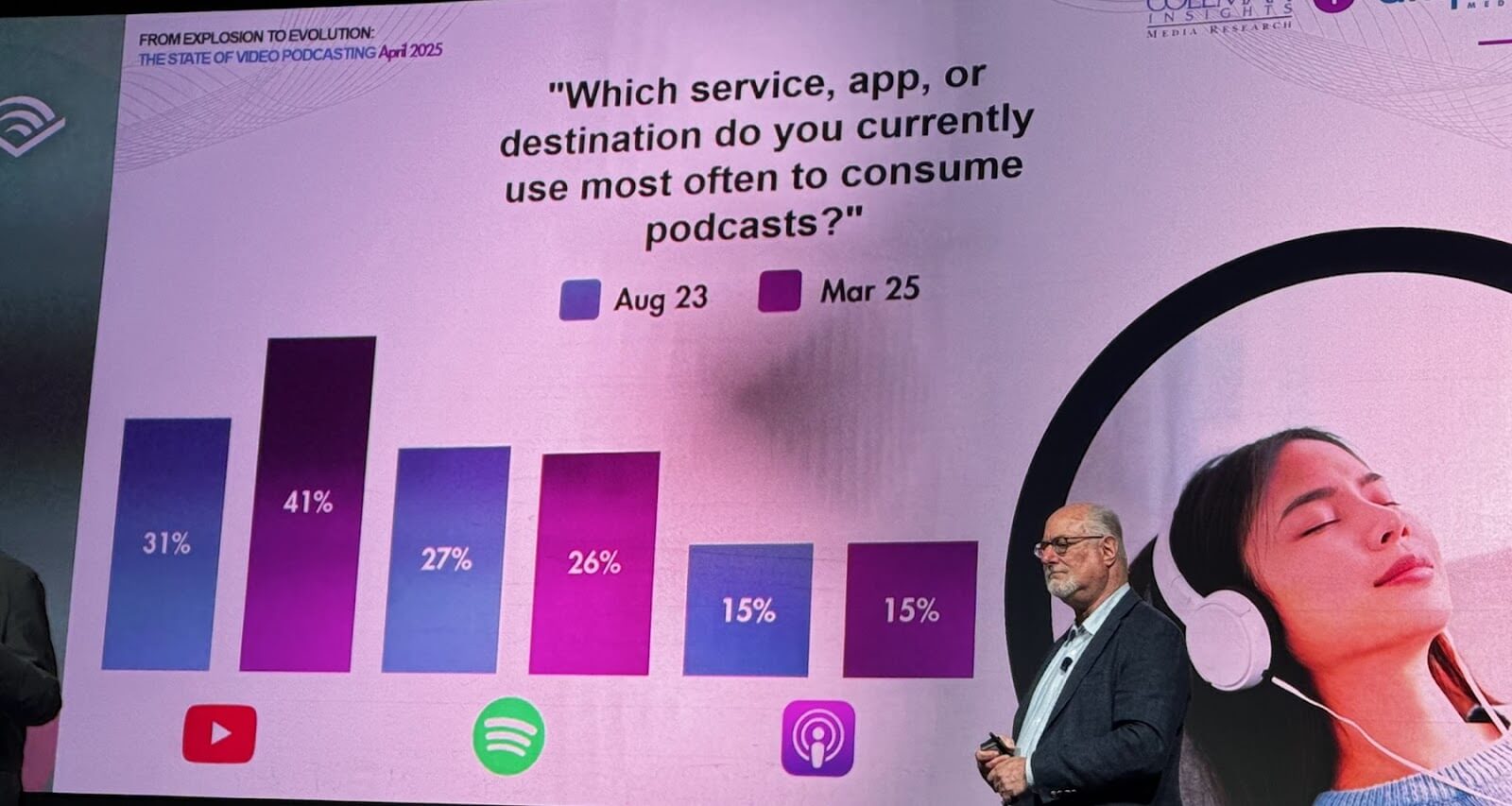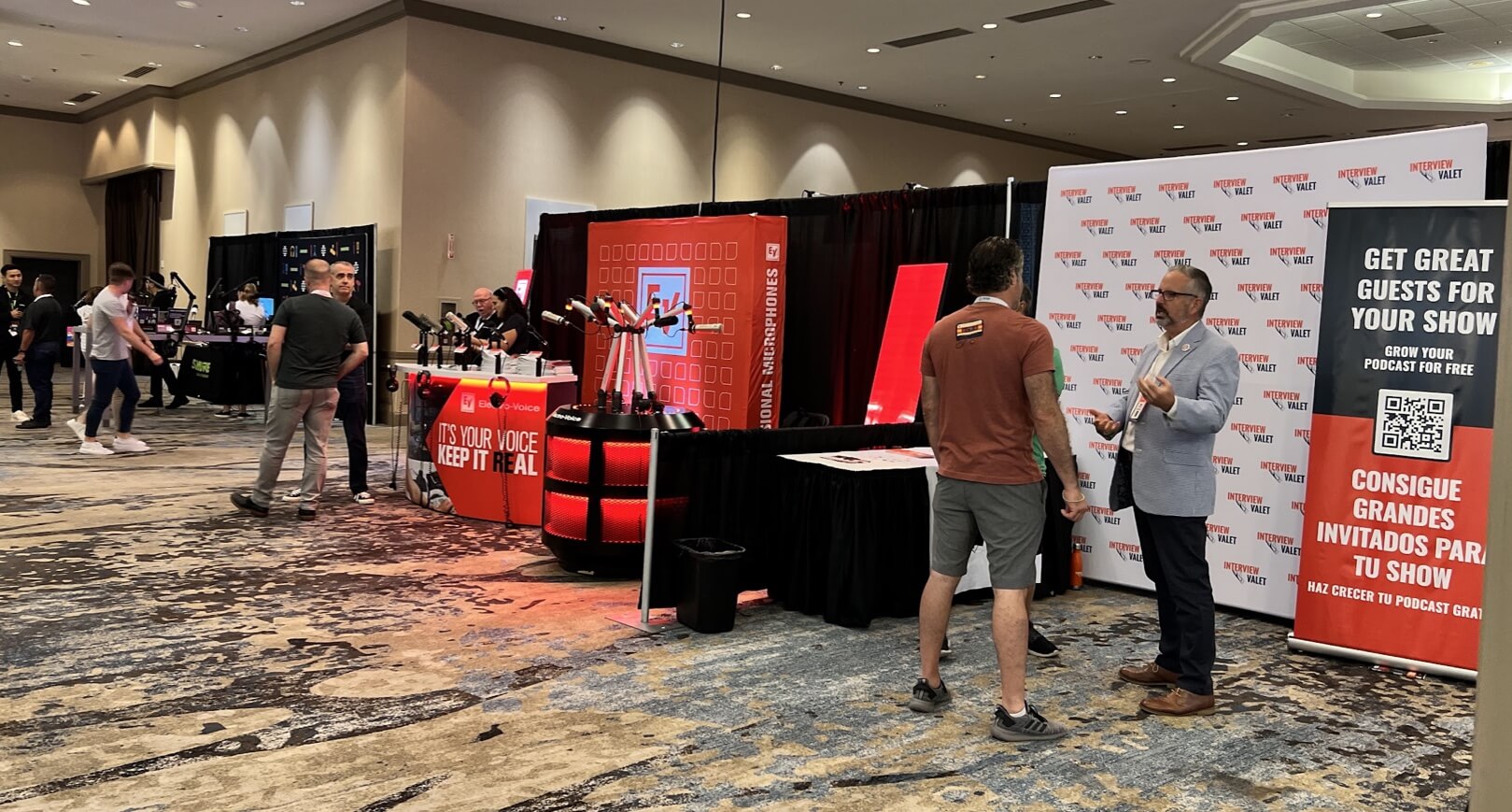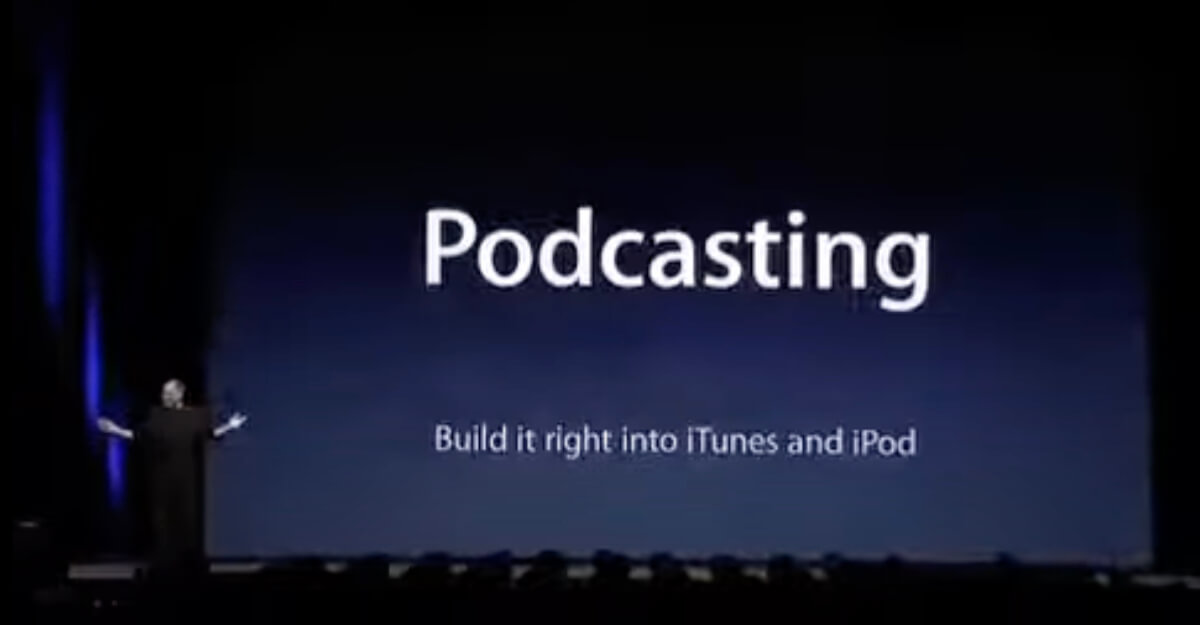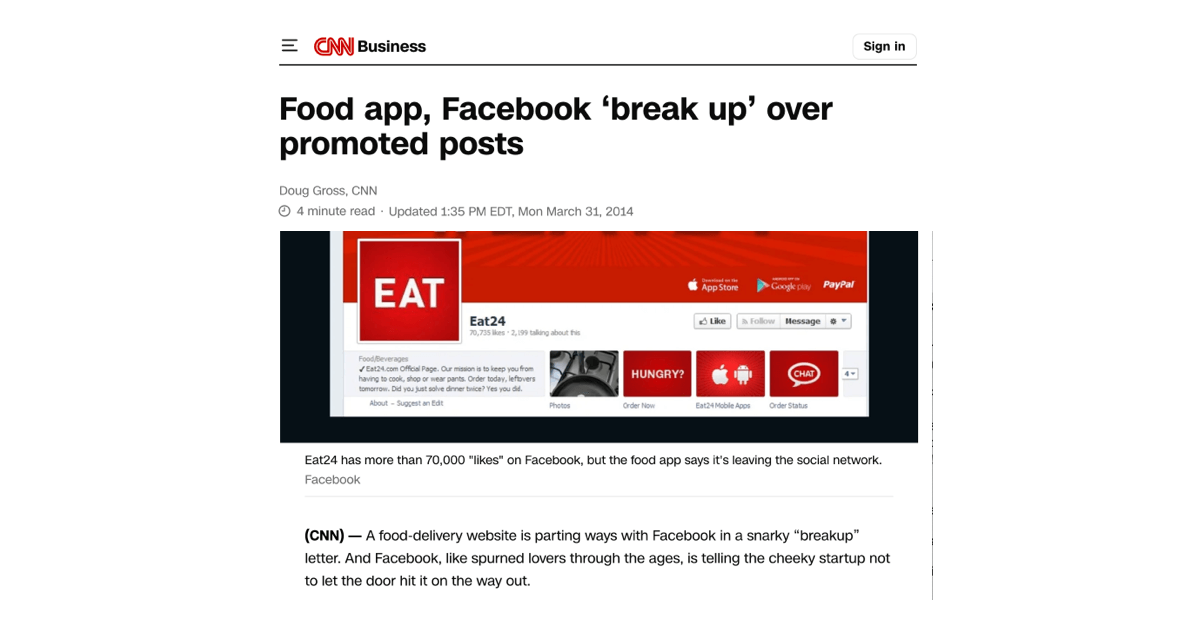Will YouTube kill the podcast industry?
tl;dr – The podcast industry has long relied on the open nature of RSS to sustain a wide variety of small businesses. But that could all disappear if YouTube becomes the de facto place to publish podcasts.
Podcast Movement Evolutions, a conference focused on 'the business of podcasting,' hosted 2,000 podcast professionals in Chicago on March 31-April 3, 2025.
The dominant conversation? YouTube. With 41% of people now using YouTube as their primary podcast platform, many industry leaders celebrated it as the future. They're welcoming YouTube with open arms. I left feeling a growing sense of dread.
While some debate whether “a video podcast is a podcast,” I’m contemplating something more fundamental: Are we about to surrender podcasting's independence to YouTube?
The beauty of open protocols (like RSS) is that they allow small, independent companies to thrive. No one company owns podcasting – while large companies can build services on top of RSS (like Apple Podcasts, Spotify, or Amazon Music), they can't monopolize the entire category.
Because no single company controls the entire market, entrepreneurs have built independent businesses that serve specific needs: Agencies, networks, podcast hosting platforms, analytics tools, dynamic ad insertion services, and listening apps.
These independent companies buy tickets and booth space at Podcast Movement. Looking around the exhibition hall, James Cridland (editor of Podnews) told me: "If YouTube wins, most of these businesses won't exist."
I worry that we’re rushing to hand control of podcasting to a $1.8 trillion tech giant. If we’re not careful, we could lose everything we’ve built.
What we stand to lose: the open ecosystem.
In 2005, Apple made a radical decision: they chose to build podcasting on RSS, an open protocol.
They could have created a closed, Apple-controlled walled garden. Instead, Steve Jobs chose to integrate with RSS feeds that Apple wouldn't own or control.
This decision prioritized openness over monetization and meant creators could host their audio files anywhere, just like hosting a website.
Apple also innovated on top of RSS, adding new tags for cover art, podcast categories, and descriptions. Marco Arment described this ecosystem as “decentralized, free, fair, open, and uncontrollable by any single entity.”
Whether by design or happy accident, that choice feels rebellious now.
Creators in this ecosystem get many benefits from RSS:
You control your content completely - Record and encode your media however you want
You choose where it lives - Pick any hosting provider or host it yourself
You keep your voice - Your content stays accessible even if you're kicked off a platform
You monetize on your terms - Use Patreon, sell ads, ask for donations, or try anything else
You decide where your content goes - Distribute everywhere or exclude platforms you don't like
RSS is one of the last truly open platforms on the internet.
So, what happens if YouTube owns it all?
We’ve seen this script before
For creators, at least for now, YouTube's appeal is the promise of reaching more people, building a bigger audience, and earning some revenue.
We've been here before. Remember Facebook Pages?
Starting in 2007, Facebook told small businesses: “Ditch your website. Create a Facebook Page instead and reach more customers.” And they did: by 2014, over 30 million brands had a Facebook page. However, once Facebook had enough buy-in, organic reach started to drop. Now, if they wanted to reach their own audience, they would have to pay Facebook for the privilege.
What started as an incredible free marketing channel for businesses became just another pay-to-play ad platform.
This whole process is a phenomenon Cory Doctorow calls "enshitification."
First, be good to creators: promise increased distribution and reach
Use creators' content to attract and retain users
Once locked in, feed user behavior into algorithms to increase engagement
Finally, squeeze both creators and users for maximum profit through ads and subscriptions
As Doctorow has covered, this is not unique to Facebook: Platforms start benevolent, then slowly degrade the experience to extract value.
This also applies to YouTube, where creators get free hosting, algorithmic reach, and monetization tools. But as we've seen with other platforms, what starts as a good deal gets worse once creators are locked in and YouTube needs to maximize profits.
How should the podcast industry respond?
If we want to maintain podcasting's independence from YouTube, we need to focus on what makes podcasting special for listeners.
In his recent post, Nathan Tower said:
Podcasting, at its best, is an antidote to the attention economy. It isn’t built for endless scrolling or fleeting dopamine hits. It’s slow media. Deep media. A space that values intelligence over impulse, conversation over clicks. If we want to save this country, we need connection. We need to listen—to real ideas, from real people, in real conversations.
This is a substantial benefit we should promote more widely: podcasting offers consumers an alternative to addictive media.
Audio podcasting also has a unique advantage over video, as articulated by James Cridland, editor at Podnews:
"Podcasts are something for your ears while your eyes are busy."
You can't watch a YouTube video while driving your car (or at least, you shouldn't). The fact that you can consume audio while doing other things is part of what makes podcasting special.
On the creator side, there are opportunities as well. If you start on YouTube, you're competing with 15 million active channels. However, if you start an audio show, you compete with only 460,000 podcasts in active production. There are still plenty of opportunities to offer podcast listeners something new or more of the content they crave.
I believe that keeping podcasting "open" will benefit both listeners and creators.
But we are competing for people's attention. The podcast industry needs to concentrate on activities that make "open RSS" a more compelling option:
Build better podcast apps with smarter discovery
Help creators create and promote better shows
Support podcasting’s unique advantages: audio while multitasking, deeper engagement, no algorithmic feed
Encourage creator-listener interaction
Enable platform-agnostic creator monetization
Projects like Podcasting 2.0 and the Podcast Standards Project are already moving things forward with transcripts, chapters, direct funding, and open monetization. However, we need to double down on efforts that create a better experience for listeners and creators.
The benefit of investing in RSS is that any innovations will be shared across the entire ecosystem. When YouTube innovates, the benefits stay inside YouTube. When the podcast community innovates on RSS, everyone benefits: creators, listeners, and businesses alike.
The path ahead
The next few years will determine whether podcasting remains an open, independent medium or just becomes another type of content on YouTube. The stakes are clear:
The viability of thousands of small businesses that depend on the open ecosystem
Creators' ability to control their content and monetization
A healthier alternative to engagement-driven platforms
As someone who's built a business in this space, I've seen firsthand how podcasting's open ecosystem enables both creativity and commerce to flourish.
Preserving that independence isn't just about protecting business interests; it's about maintaining one of the last truly open spaces for human connection in digital media.
Regards,
Justin Jackson
Special thanks to Michael Osborne, Eric Johnson, and Kevan Gilbert for helping me edit this piece in a big way!
Connect with me on:



